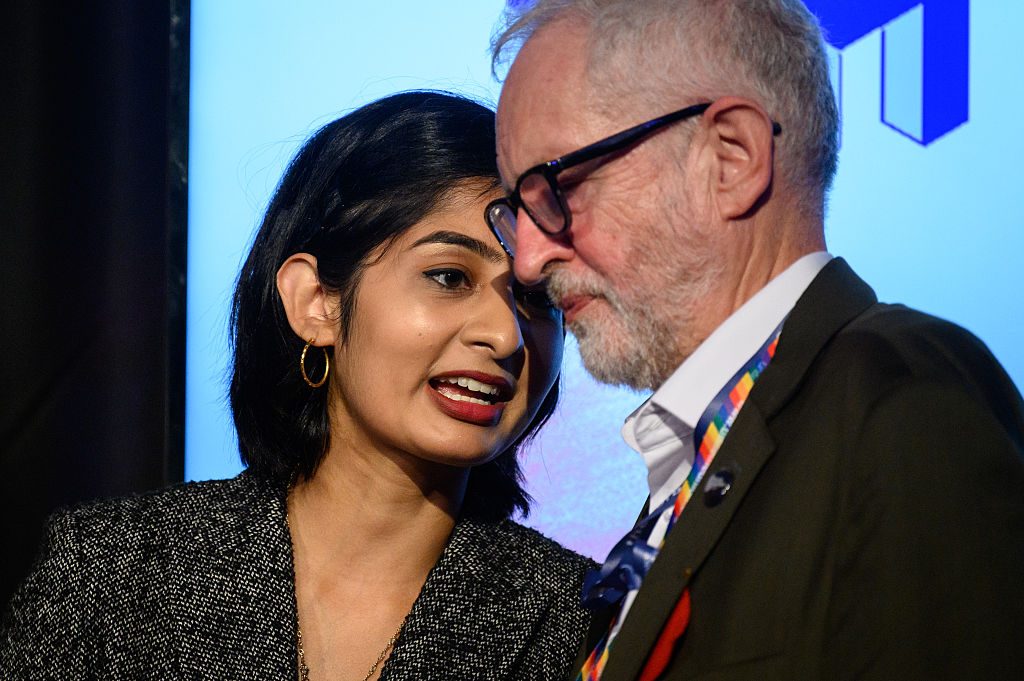Jeremy Corbyn and Zarah Sultana have finally launched a website for their new political party. And, despite some teething issues, the timing could hardly be better: the conditions are ripe for a new insurgent party of the Left.
Research from More in Common last month showed that half a dozen once-safe Labour seats in London are already poised to switch to a prospective Corbyn-led party. What’s more, even Keir Starmer would be vulnerable to losing his seat in Holborn and St Pancras. Two years ago, I warned that Starmer would come to regret purging Corbyn from the party ranks. There would be a cosmic irony if the Labour leader’s decision brought about the circumstances enabling his predecessor to remove him from Parliament.
The old party loyalties are basically dead, evidenced by extreme volatility in polling. At the start of last year, Labour was polling as high as 49%; after a year in power, that figure is now 23%. During the same period, Reform UK has risen from just 5% to 27%. Some polls have put Nigel Farage’s party as high as 34%, a larger proportion than Labour received at the last election. Within just 18 months, Labour and the Conservatives have gone from a combined 76% of the electorate to just 36%, and Reform has increased its support by over 500%.
While Reform has profited from disaffection on the Right, as well as from working-class voters angry about high levels of immigration, there is a fairly conspicuous gap in the political market. On the face of it, the Green Party should have been the obvious “Reform of the Left”. But the Greens have barely grown their support in the last 12 months, creeping from 7% at the general election to about 10% in polls now.
So into the breach step Corbyn and former Labour MP Zarah Sultana. The media is yet to provide much commentary on the fact that, last month, Corbyn ally Pamela Fitzpatrick registered a new political party called “Arise”. Fitzpatrick is the director of the Peace and Justice Project, which is behind the website for Corbyn and Sultana’s new vehicle. After Sultana denied that “Your Party” was their chosen name, could “Arise” be a more popular choice?
Even without a name, this new Left-wing party is already out-polling the Greens. One key factor is that Corbyn is one of the best-known politicians in Britain. Outside of prime ministers, only he and Nigel Farage have near-universal name recognition. Additionally, Corbyn has the credibility to lead an insurgent party for disaffected Left-wingers because, in clear contrast to the current Labour leader, he is still widely viewed as a man who sticks to his principles. The key issues for his potential voters are foreign policy — namely, his staunch opposition to Israel — and economic justice, including public ownership, wealth taxes, and better public services free at the point of use.
Given his track record, Corbyn is better placed than the Greens to benefit from the disaffection with Labour among Muslim voters in many of Britain’s cities. After winning his seat as an independent at last year’s election, Corbyn has worked with four Muslim MPs themselves elected as independents, mostly motivated by anger at the Labour Party over its perceived support for Israel.
There are still many potential obstacles in the path of the new party. For one thing, it will need to come to an understanding with the Greens. If they can form some kind of alliance, just as the Social Democratic Party and the Liberals did in the Eighties, then they will be a formidable electoral force. If they do not, they will undermine and weaken each other.
Internally, Corbyn and Sultana will have to manage policy divisions and decide how pluralist the party wishes to be. For example, it will have to manage differences of opinion on LGBT issues, often on matters where passionate campaigners view any compromise as betrayal.
The new party could perform well in London and some urban constituencies across England, especially those that are younger and more ethnically diverse. Labour may come to rue its move to introduce votes for 16- and 17-year-olds, who are both more ethnically diverse and more concerned about Palestine than the median voter. It is possible that if these teenagers could have voted last year, Health Secretary Wes Streeting might have lost his seat to the British-Palestinian activist Leanne Mohamad. He is even more likely to do so now.











Join the discussion
Join like minded readers that support our journalism by becoming a paid subscriber
To join the discussion in the comments, become a paid subscriber.
Join like minded readers that support our journalism, read unlimited articles and enjoy other subscriber-only benefits.
Subscribe